Very adaptable with bat like-ears, the Frenchie loves people and are excellent companions for apartment dwellers

French Bulldog Spotlight
- Loving and affectionate
- Great with children
- Easy to care for and groom
- Does not require a lot of exercise
- Can become obese easily
- Prone to skin allergies
- Good for first-time dog owners
- Very alert and vocal
History
The French Bulldog did not originate in France as the name may suggest to some and actually originated in England. The breed was created due to some demand for a toy sized version of the Bulldog. This breed become popular, especially among lace workers in the city. When the lace workers moved to France to find better working opportunities, they took their French Bulldogs with them.
This breed did well in both France and Europe and eventually made his way over to the United States. This breed was first seen within the US at the Westminster Kennel Club show in 1896. The breed has adopted the nickname of Frenchie and is still popular to this day.
The American Kennel Club recognized the French Bulldog officially in 1898 and this breed is considered to be the 6th most popular dog breed according to the American Kennel Club.
Personality & Temperament
French Bulldogs make wonderful family pets and are considered one of the best companion dogs that you can have. This breed is small and easy to manage within your home, so it is a good choice for families, single individuals, and seniors.
The French Bulldog is a clown and often mischievous, so you must pay attention to what he or she does during the day. This little fireball is not going to simply sit on the couch all day and will give you a run for your money.While this breed is not too overly energetic, he or she does like to play and will crave your attention. If attention is not given, you may find that this breed is destructive within your home.
The French Bulldog is loving and compassionate to all of those within the household including family members, kids, and other pets.
Appearance & Grooming
The French Bulldog is a small dog and stand about 11 to 12 inches tall and weighs anywhere between 16 to 28 pounds, with the females weighing less than the males. The French Bulldog has a stocky appearance and looks muscular.
The coat of the French Bulldog is shiny, smooth, fine, and short. The skin on your puppy is going to be loose and often wrinkled, especially at the neck, face, and base of the tail. The coat and wrinkles are soft to the touch and should not be rough at all.
This breed comes in a number of different colors to include brindle, cream, and fawn. In addition, you will find that many French Bulldogs have colored markings on them as well.
Grooming of the French Bulldog is considered easy and does not take a lot of time. Since the coat is short, you will notice your puppy does not shed a lot. You should brush your French Bulldog’s coat once or twice per week to help remove loose hairs and keep the coat healthy.
You only need to bathe your puppy when he or she truly needs it. Over bathing your pup can cause dry and itchy skin. When you bathe your French Bulldog, use a shampoo that is mild on the skin and does not strip the natural oils from your puppy’s fur or skin.
You will need to clean your French Bulldog’s ears out once per week or as often as necessary to remove any buildup of earwax and dirt. In addition, you should trim your French Bulldog’s nails, as they are not naturally worn down, which means overgrowth can occur.
Health
French Bulldogs are considered to be healthy in nature, but it is important to work with a reputable breeder to ensure that no conditions are passed down to the puppies.- Brachycephalic Syndrome - often occurs with dogs who have narrow or short heads. The airway becomes obstructed from a slight obstruction to a severe obstruction and this causes your pup’s breathing to be labored or even loud and noisy. Dogs who have this condition often snort. The condition is treatable and your veterinarian may administer oxygen therapy.
- Hip dysplasia - is an inherited condition that is common in both large and small dogs. This condition occurs when the hip joint does not fit correctly with the thigh bone, which then leads to the deformation of the joint. This condition can cause arthritis and it is painful. You may notice that your French Bulldog does not maintain his or her activity level and may have trouble standing up or laying down.
- Hemivertebrae is a condition that is marked by the malformation of one or multiple vertebrae. These malformed vertebrae are often triangle or wedge shaped. This condition is unique in that it can either cause no problems for your French Bulldog or it may place pressure on the spinal cord.
- Allergies - The French Bulldog is often afflicted with allergies and they can range from a food allergy to a substance allergy or even a skin allergy. It is vital that you monitor your French Bulldog’s health every time you introduce a new product or head out to a public place. Allergies can appear on your French Bulldog as sores, rashes, itching, inflammation, and more.
- Patellar luxation is a dislocated knee and it is common in small breeds. If the knee is luxated, you may notice that your pup hobbles around, hops, or keeps his or her leg elevated off of the ground.
Exercise & Care
French Bulldogs do not need to receive a lot of exercise and they are often lazy, but it is important that you provide them with a walk or outside play time because this breed can become obese.
You will find that the French Bulldog does like to play and will engage in a game of fetch or two with you, but you should not expect him or her to spend all day outside either.
This breed does train easily and is eager to please, but you may find that he or she takes on a stubborn side from time to time. You should remain consistent and offer positive reinforcement.
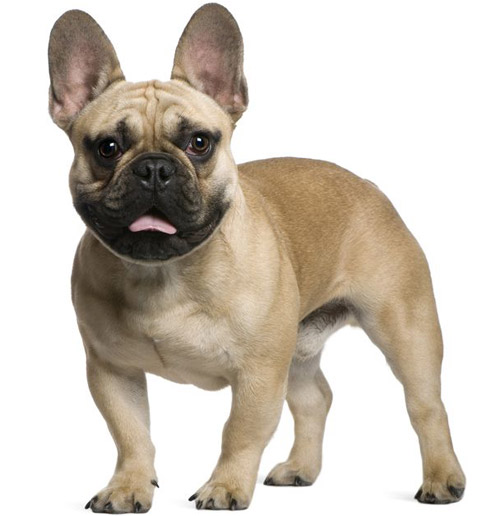
 France
France
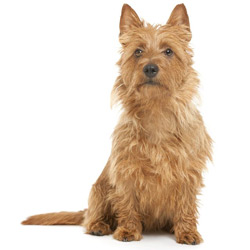
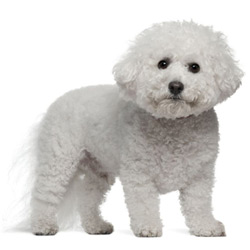
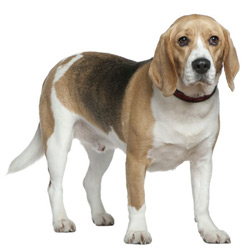
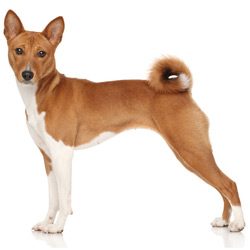
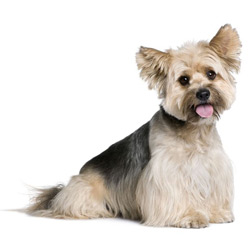
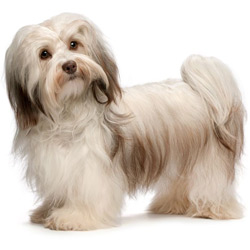
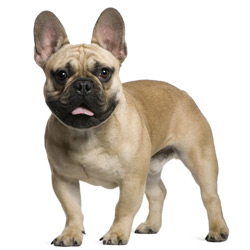
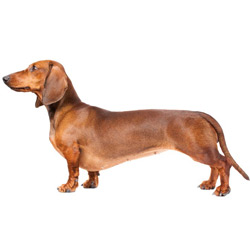
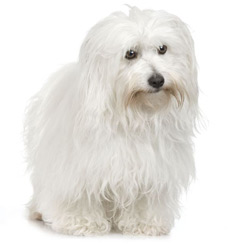
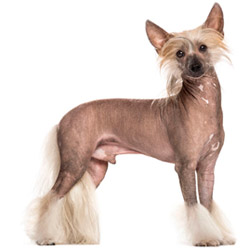
What do you think?